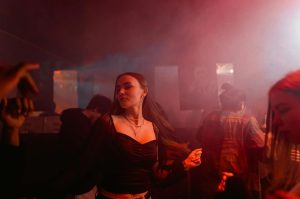 Social media influencers have emerged as pivotal figures in shaping trends and driving consumer behavior, particularly in the realm of party culture. This relationship not only enhances the visibility of parties and events but also opens lucrative avenues for brands and marketers. This article explores how influencers have transformed party culture into a vibrant marketing frontier.
Social media influencers have emerged as pivotal figures in shaping trends and driving consumer behavior, particularly in the realm of party culture. This relationship not only enhances the visibility of parties and events but also opens lucrative avenues for brands and marketers. This article explores how influencers have transformed party culture into a vibrant marketing frontier.
Social media influencers wield significant power by virtue of their ability to reach large audiences with a single post. When these influencers share their party experiences—whether it’s a birthday bash, a music festival, or an exclusive nightclub opening—they grant immediate visibility to the event and associated brands. This visibility is not passive; it’s engaging and can drive immediate reactions from followers who trust and emulate the influencers’ lifestyles.
Brands are keenly aware of the potential that influencers hold. As a result, many businesses, especially those in the lifestyle, beverage, and entertainment industries, are eager to form partnerships with influencers. These collaborations often involve sponsored attendance at events or direct promotion of party-related products, such as designer outfits, luxury drinks, and high-end venues. By associating their products with a popular influencer’s glamorous lifestyle, brands can enhance their desirability and reach target markets more effectively.
The Role of Content Creation
An influencer’s content is a mix of personal narrative and subtle marketing, which resonates more authentically with their audience than traditional advertising. During parties, influencers create engaging content such as live videos, stories, and posts that not only highlight their experiences but also subtly push the products or brands involved. This content is valuable because it comes across as a personal endorsement from the influencer, which is often seen as more genuine and trustworthy than conventional advertising.
Influencers often work with event planners to craft unique themes or experiences that can attract more attention online. This could include exclusive performances, unique décor, or interactive elements that encourage participants to share their experiences on social media. Such parties are designed to be visually appealing and “Instagrammable,” ensuring that they generate significant online buzz.
Measuring the Impact
The effectiveness of influencer partnerships can be measured in various ways, but the most common metrics are engagement rates, reach, and conversion. Brands look at how much interaction each post receives and how these interactions translate into measurable actions, such as visits to a website, sign-ups, or sales. Moreover, the secondary ripple effect—wherein attendees of influencer-promoted parties share their own content—can further extend the event’s reach and impact.
Despite the advantages, working with influencers comes with its set of challenges. For one, the cost of engaging top-tier influencers can be prohibitively high, making it a risky investment if the event does not achieve the desired impact. There’s also the issue of authenticity; followers are becoming more discerning and can easily spot a post that feels too commercialized, potentially damaging the influencer’s credibility.
As the digital landscape evolves, so too does the nature of influencer engagements. We are seeing a rise in the use of micro-influencers—individuals with smaller, more niche audiences—who often boast higher engagement rates than their mega-influencer counterparts. Additionally, virtual reality (VR) and augmented reality (AR) are starting to play a role in party culture, offering new ways for influencers to deliver immersive, interactive content.
The synergy between social media influencers and party culture presents a substantial opportunity for marketers. By leveraging the authenticity and extensive reach of influencers, brands can effectively engage with audiences in a dynamic, interactive manner. As this trend grows, it will become a crucial part of future event marketing strategies, making influencer collaborations an essential element of modern marketing.
